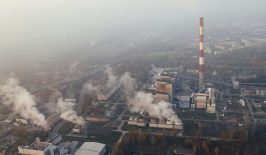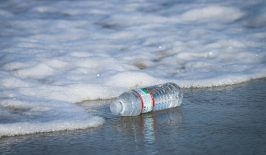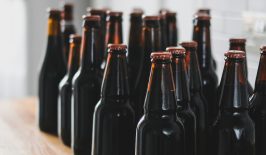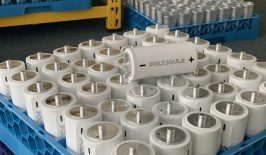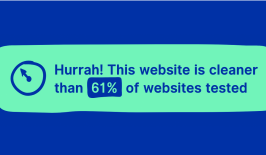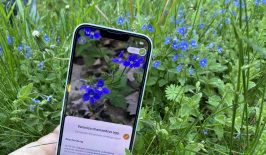At the end of last year, the second Bits and Bäume (Bits and Trees) Conference took place in Berlin from September 30 to October 2. After a very successful first conference in 2018, it once again tackled the question of what a fair and sustainable design of the digital world looks like. Overall, the conference was organised by a broad alliance of civil society organisations and scientific institutions.
Friederike Rohde is a member of the Institute for Ecological Economic Research’s (IÖW) board of trustees and, together with her colleague Frieder Schmelzle, was involved in the program and the development of the political demands that were published at the conference. We met her for an interview and talked about the successes of the conference, how the cooperation of the resulting network can be maintained and how more influence can be exerted on politics.
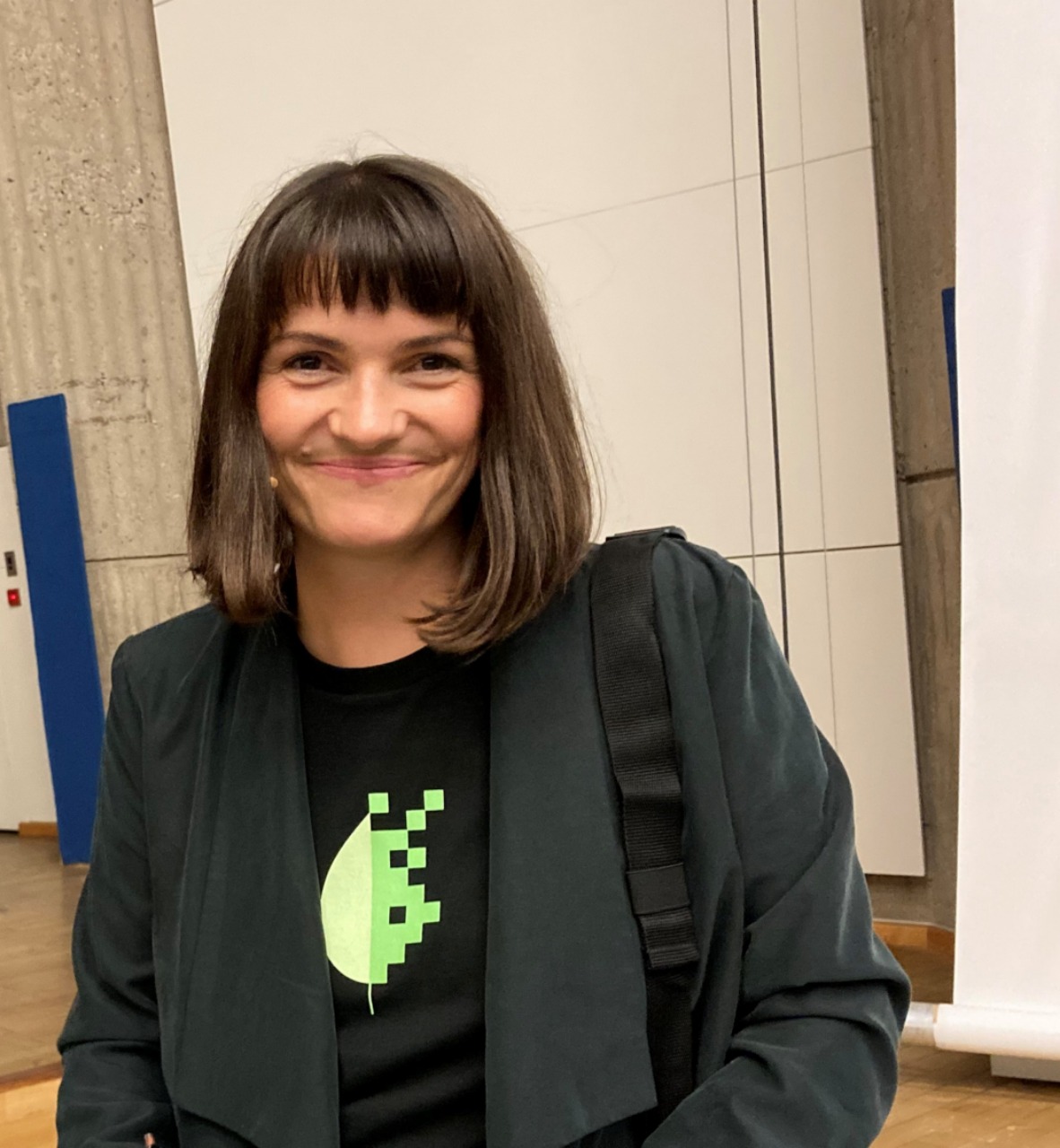
Friederike Rohde is a research associate at the Institute for Ecological Economy Research (IÖW). She is doing her doctorate on the future of digitalisation in the energy system and what role sustainability plays in it, and is working on the topic of artificial intelligence and sustainability, among other things.
RESET: The first conference took place in 2018, so four years ago. What do you say: How has the topic of sustainability and digitalization evolved over the past four years?
Friederike: At the first conference, it was basically more of a problem analysis. In other words, the question of what the problem behind the interface between digitization and sustainability actually is. Because on the one hand, we have a social process of digitisation that runs through all areas. And we have the goal of making our society more sustainable. And how do you reconcile these two things in any way?
At the second conference, it became clear that there is now much more knowledge and activity on the subject: Where are structural problems? What are actually the positive effects? What are the aspects that are more risky and where are there overlaps between social and environmental aspects? The topic of cookies and tracking is a good example of this; this not only generates data and resource flows that are unnecessary, but is also problematic for data protection.
A great deal of progress has been made in this area, for example, people no longer ask what digitisation and sustainability have to do with each other, but it is quite clear that they are linked. In the meantime, there is more discussion about how you can actually shape this so that it goes in the right direction.
What’s your conclusion of this year’s conference? Would you call it a success?
I would definitely rate the conference as a success, and especially in terms of the fact that we achieved increased political impact. I think above all because we worked a lot on the political demands in the run-up to the conference in the group of sponsors and published them. At the conference, actors from civil society, science and politics then discussed these joint demands. This further strengthened the relevance of the topic of digitisation and sustainability among political decision-makers.
But of course the topic has also evolved and it has become clear – also in comparison to the first conference – that there are many more people who are actually working at the interface of digitisation and sustainability.
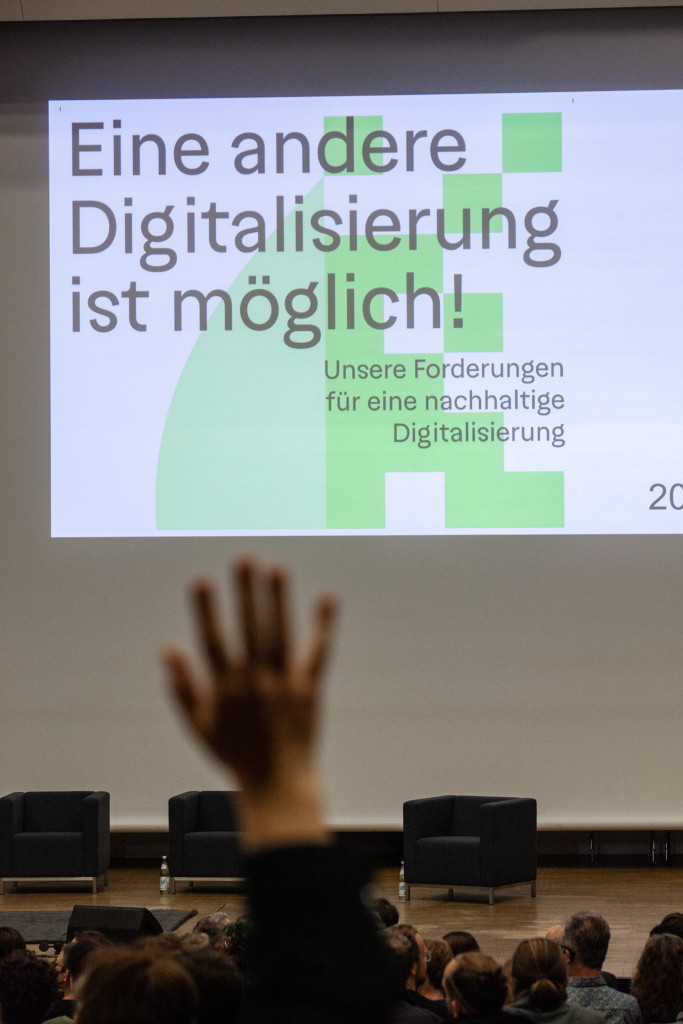
Digitalisierung zukunftsfähig und nachhaltig gestalten. Politische Forderungen der Bits & Bäume 2022
On the occasion of the conference, the 13 participating organizations from environmental protection, nature conservation, digital policy, development cooperation and science published a joint appeal that addresses the German federal government, the European Union and political actors worldwide with concrete demands. The demands include placing digitization more strongly at the service of society and social and ecological change, instead of further exacerbating existing crises through exploding energy demand, resource consumption and a lack of participation, especially in the Global South.
Developing the common political demands was certainly not an easy process, was it?
Yes, it was an intensive process of negotiation between the various organisations in the group. But I found this process very productive and interesting, because in the process, the organisations of the support group, which all have very different perspectives and goals, really agreed on a common list of demands that is very detailed and concrete.
At the conference, we then tried to include as many political perspectives as possible, in addition to perspectives from the Bits & Bäume communities, and invited political actors with different backgrounds. But what it was also about, and I think this is also an important point, is that civil society needs a clear, strong voice in political processes. And that you try to really organise a kind of cooperative lobbying as a Bits and Bäume movement and say that there are certain objectives that we’ve agreed on and that we’re committed to.
What do you think? Are your demands and the conference already having an impact?
In the aftermath of the conference, the topic is definitely much more present and the need for discussion on the part of political actors has grown noticeably. I think that the topic is much more on the political agenda and that the important aspects are actually being discussed.
What are the next steps? You are currently preparing a publication, right?
Yes, that’s the process we’re very much involved in right now, the Bits and Bäume journal. In this publication, which arises from the Bits and Bäume conference, there will be very many exciting contributions on the topic, also from very different perspectives. This time it will be in English. The idea is to have an impact in larger spaces than just the German debate, both at the European level and internationally.
But it’s also about having a longer-term impact as a network, isn’t it?
Yes, we are currently working intensively on the question of how this alliance, which has now come into being and which is doing very good and meaningful work, can be consolidated in such a way that we can work together in the longer term and also carry out this cooperative lobbying really effectively.
We want to continue to be very involved in this alliance because we believe that it can achieve a great deal. In other words, that digitisation is made more sustainable in the future and that we can really achieve the structural changes that are necessary for this with the concentrated power of this alliance. And we want to work even harder with our political demands and introduce specific demands into political processes in an even more targeted manner.
Your political demands are very comprehensive. Can you nevertheless name aspects on which you want to focus?
Well, there are three areas that are most important from our perspective. One is the issue of devices and hardware. We have, for example, a demand for the right to device neutrality – and that’s a pretty far-reaching and also comprehensive demand. But it solves quite a few problems that have to do with digitisation and sustainability, because the biggest ecological footprint is in the devices. There are all sorts of studies that show exactly how the energy and resource consumption of devices is very significant and accounts for over half of the total ecological footprint. So the bottom line is that if I get a fairly manufactured cell phone that I use for many years, then streaming, for example, won’t be as big a factor. This proportionality between the energy and resource consumption of devices must be addressed.
The second aspect that we at IÖW find important is the whole issue of new forms of economic activity, i.e. alternative economic activity and alternative platforms. Whether or not we are heading for a socio-ecological transformation has a lot to do with our way of doing business and the extent to which alternative forms of economic activity are possible at all. One of our demands is therefore that it must be legally possible to establish a cooperative digitally, i.e. that the potential of digitisation can really be used to enable alternative forms of organisation and alternative forms of economy. This is the only way to counteract the economic imbalance that has arisen between large and small players.
And the third issue is the question of who actually participates in decision-making processes, both in political decision-making processes, but also in how we evaluate the social effects of technologies. For example, there should be committees in which science, business and civil society are involved in a balanced way, and not something like what happened with the digital strategy. It turned out that 15 meetings were held with the business community during the preparation phase, but not even once with civil society.


